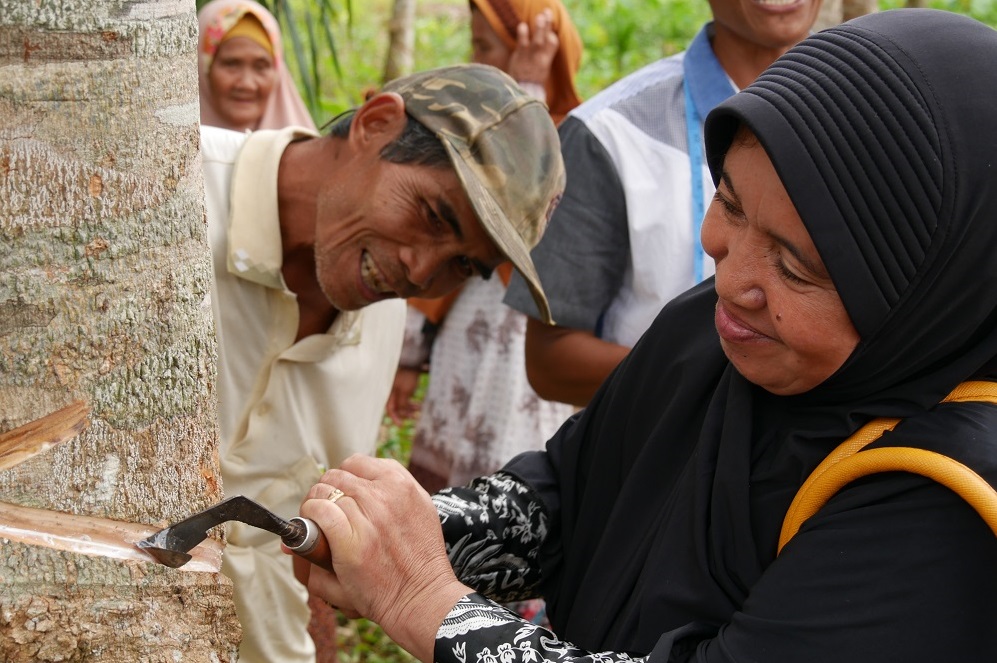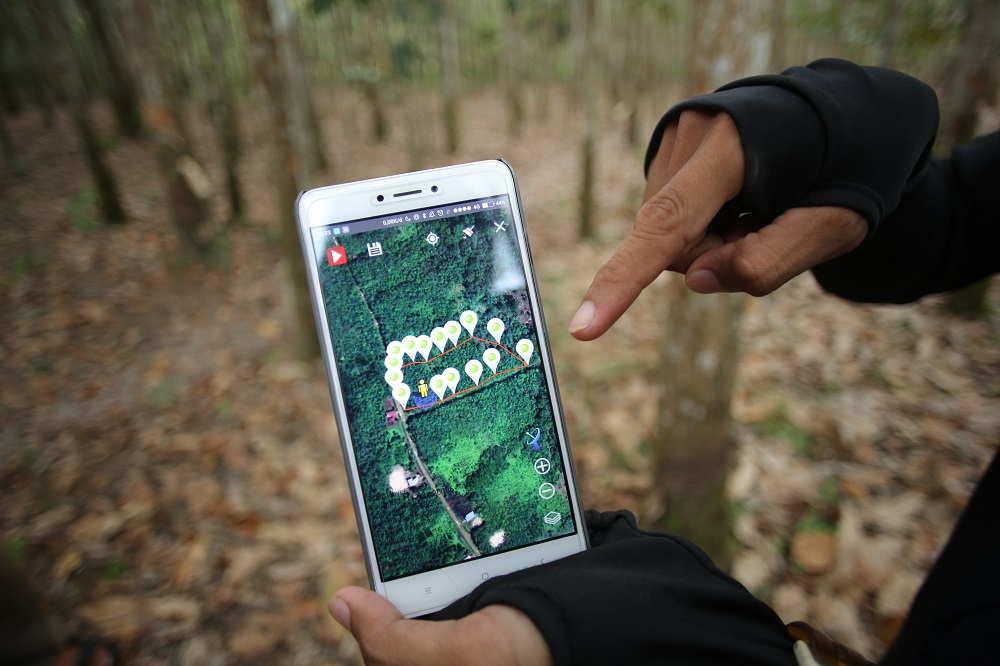Continental is pursuing a holistic approach to make complex and fragmented natural rubber supply chains more sustainable
The latest digital technologies, local involvement in rubber cultivation and close collaboration with strong partners aim to create more transparency along the entire value chain.
“We actively take responsibility in our supply chains. Only when natural rubber is sourced responsibly do we consider it a sustainable material,” says Claus Petschick, Head of Sustainability at Continental Tires. Today, full traceability of natural rubber is practically impossible due to the great complexity of the supply chain. With his commitment, Continental is working on a project for the sustainable and responsible structuring of supply chains.
Natural rubber remains essential to ensure exceptional tyre performance. This natural product represents between 10 and 40 per cent of the total weight of modern high-performance tyres. The special properties of natural rubber include the high level of strength and durability caused by stress-induced crystallisation of the rubber. Currently, natural rubber is obtained almost exclusively from the rubber tree Hevea Brasiliensis. The European Tire and Rubber Manufacturers Association (ETRMA) estimates that up to 6 million small farmers around the world are economically dependent on rubber extraction. In addition, natural rubber goes through up to seven different intermediaries and processing companies before arriving, for example, at the Continental factory gates.
Goal: 100% responsibly sourced natural rubber by 2030
Continental aims to source all natural rubber for its tyre production from responsible sources by 2030. To achieve this, Continental is pushing especially hard to increase the transparency of supply chains. Innovative technology, digitization, education projects and systematic risk mapping are the main tools that Continental uses to make supply chains more sustainable.
In its Policy for Sustainable Sourcing of Natural Rubber, Continental establishes clear responsibilities and obligations for itself and for all suppliers and service providers throughout the entire natural rubber value chain. Its sustainable sourcing policy aims to minimise risks in relation to the environment, human rights and society.
More transparency in the evaluation of sustainability results
In order to be able to assess the sustainability performance of suppliers, Continental has been working since 2017 with EcoVadis, the world’s leading provider of sustainability ratings for companies and global supply chains. Clear responsibilities and obligations for supplier selection help minimise environmental and emissions risks, as well as human rights and social risks.
In collaboration with Michelin and software developer SMAG, Continental is developing technical solutions to map sustainability practices in the natural rubber supply chain. The two tyre manufacturers and SMAG have created a joint venture, Rubberway, to identify potential risks in the supply chain at an early stage. An application collects and then evaluates data on potential environmental impacts and social and human rights risks. The results obtained constitute the basis for minimising these risks throughout the supply chain. The joint venture and its actions are in line with the objectives of the Global Platform for Sustainable Natural Rubber (GPSNR). As a founding member of GPSNR, Continental works with other partners to increase traceability in the natural rubber value chain. At GPSNR, NGOs and stakeholders collectively representing more than 50 percent of the global demand for natural rubber and representing all stages of the value chain are working to build a fair and sustainable supply chain.

Digital technology and precise data management ensure transparency
Using digital technology and comprehensive data management, Continental examines various points in the natural rubber supply chain to increase its transparency. Together with Security Matters (SMX), which specialises in digitising physical objects on the blockchain, Continental has developed a procedure that allows natural rubber to be invisibly tagged with information. Information on natural rubber can be read using special readers and specially developed software to verify its sustainable origin. To purchase natural rubber from responsible sources, standardised information on compliance with social and environmental standards and quality criteria can be transparently viewed on the digital natural rubber trading platform HeveaConnect. The platform also offers the ability to incorporate insights from the Rubberway joint venture’s analytics. In addition, laboratory tests of the marker technology have been successfully completed in another project.
Training of small producers in sustainable rubber cultivation practices
Within the framework of a development partnership with the German Society for International Cooperation (GIZ), Continental is involved early in the supply chain in Indonesia, the world’s second largest producer of natural rubber. In this country, production is carried out mainly by small independent producers. More than 2.5 million Indonesian farmers cultivate about 85% of the country’s growing areas. Most farmers live in remote areas, making it difficult to reach them with offers of advice and training. In a joint development partnership, Continental and GIZ are training local smallholders in sustainable farming practices. This helps farmers grow higher-quality natural rubber, which in turn helps secure the livelihoods of many small farms and prevents deforestation. The number of farmers involved will increase from 450 to 4,000 in 2024.
Locate alternative sources of natural rubber
Natural rubber is a raw material used in more than 50,000 products, according to the Fraunhofer Institute. The tyre industry is the largest consumer of world rubber production (73 per cent). Due to the high global demand for natural rubber, Continental is looking for more ways to extract it. The tyre manufacturer has spent years researching, together with its collaborators, innovative and sustainable materials, such as natural rubber from dandelions. The central objective of Continental’s Taraxagum project is that in future natural rubber is no longer imported exclusively from the tropics and is produced as close as possible to tyre factories. In this way, further deforestation will be avoided, and CO2 emissions will be reduced thanks to the reduction of transport distances.




















